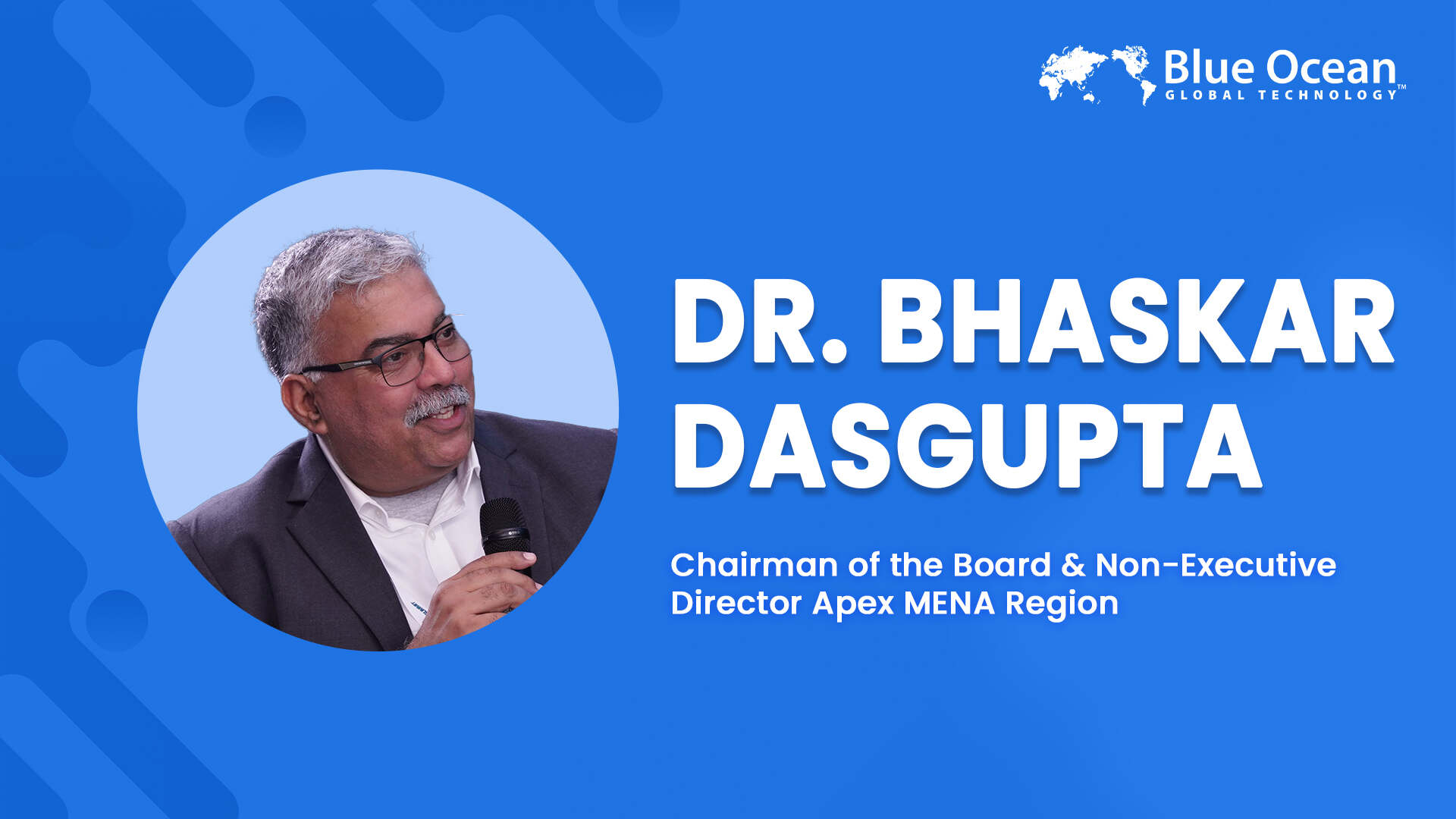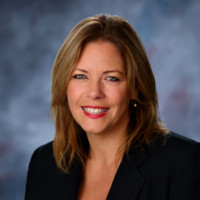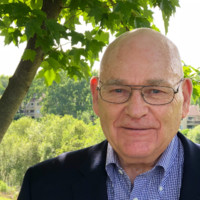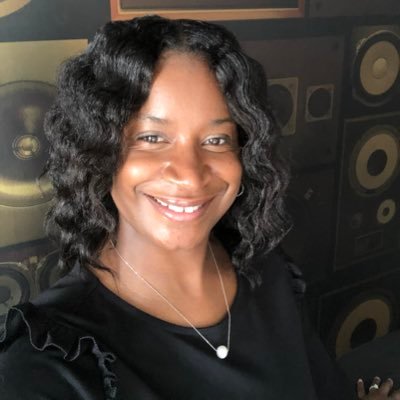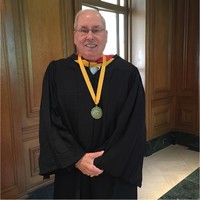About Dr. Bhaskar Dasgupta

Dr. Bhaskar Dasgupta is a seasoned board member and business executive with extensive experience in regulatory engagement and strategic business development across sectors such as banking, crypto, and asset management. Currently serving on the boards of several regulated firms and advisory boards for startups in Israel, UAE, Bahrain, India, Brazil, and the UK, he previously led the development of Abu Dhabi’s Award-Winning International Financial Centre (ADGM) and its Financial Services Regulatory Authority. He assisted in helping ADGM tripled AUM, establish ADGM as the largest regulated crypto jurisdiction globally, and significantly help expand venture capital activities in the region.
Blue Ocean: Tell us about your professional journey.
Dr. Bhaskar Dasgupta: I grew up in India, where I completed my undergraduate degree in mathematics. Afterward, I pursued a Master’s degree in finance and upon graduation, ventured into entrepreneurship, launching several startups in India. After three years in the startup world and teaching at the local university, I moved to Manchester to further my studies before relocating to London. There, I worked across various roles in financial services, primarily focusing on banking and financial technology.
At the age of 43, I attempted to retire, but that phase lasted four weeks. My wife and children—who I call my ‘cost centers’—quickly staged a revolt, complaining that I was eating too much and becoming a nuisance around the house. They literally pushed me out the door.
Not wanting to return to banking, I joined the British government. I worked in several departments including the Treasury, the Department for International Trade, and the Department for Local Communities and Housing. Afterward, I received an opportunity to move to Abu Dhabi to help establish and regulate the city’s financial center. I spent three years there before transitioning into semi-retirement.
Currently, I run a small family office, advice on family matters and asset management. I also am associated with various professional associations and clubs. My day job, so to speak, is serving on the boards of regulated firms, family offices, and funds in India, the Middle East, and Europe.
Blue Ocean: What does a typical day look like for you as Head of Strategic Development (MENA) at Apex Group, and how do you tackle the challenges of expanding the region?
Dr. Bhaskar Dasgupta: I work for Apex Group about two and a half days a week, and my role is divided into two main parts.
The first part involves chairing the boards of Apex Group’s various regulated entities in the Middle East and India. This is where the more formal, ‘adult’ responsibilities come in– overseeing board meetings, ensuring actions are followed up, and regularly engaging with my CEOs. I spend a significant amount of time guiding and advising them, and in some cases, making tough decisions such as hiring or even firing them. This aspect of my role is heavily focused on corporate governance and leadership.
The second part of my time is dedicated to strategic development. In this capacity, I help open doors for our sales teams, forge partnerships, and support marketing and events. Essentially, I focus on driving business development and finding new opportunities for the firm.
My day usually starts with sorting out my schedule. I manage a personal investment portfolio that includes around 20 firms, and I sit on the boards of nearly 10 companies. So, each meeting I attend carries substantial weight. Whether I’m acting as an investor, advisor, or board member, I have to be mindful of the long-term implications of my decisions.

Blue Ocean: What current trends in your industry excite you the most?
Dr. Bhaskar Dasgupta: When we talk about current trends in the finance industry, a few key things stand out. The first major issue—though it’s both a challenge and an opportunity—lies in geopolitics. Over the next 18 months, the global landscape will be shaped by significant geopolitical shifts. Prolonged conflicts bring uncertainty, and the broader geopolitical environment is going to heavily impact global markets.
Beyond geopolitics, macroeconomics is also intriguing. For example, a country that used to produce 5,000 to 10,000 startups per year is now generating barely 200. One of the world’s largest engines for innovation, tech, and wealth creation has essentially shut down. In the U.S., the upcoming elections and the increasing political polarization present further challenges. We’re seeing similar polarization in places like India, Europe, the UK, and Brazil. This raises the question: can governments effectively respond to both geopolitical and macroeconomic crises?
Now, on to what excites me. The traditional idea of “jobs for life” is quickly disappearing, and the startup ecosystem is becoming increasingly important. People are taking on more diverse roles and creating their own opportunities, and this shift is something we need to address and adapt to.
Another exciting area is healthcare and health tech. People are living longer, and the pandemic highlighted significant issues in healthcare systems and their financing. We’ve seen just how fragile our health infrastructure can be, which presents a huge opportunity for innovation in this space.
There’s also the issue of retirement and financial security. Many people simply do not have enough money to retire. Governments have taken on a significant amount of debt, and the burden of financing future retirements is a pressing concern.
Lastly, virtual assets and cryptocurrencies are becoming increasingly interesting. This space continues to evolve and presents both risks and opportunities.
These are major areas that both worry and excite me, as they represent significant challenges as well as immense opportunities for innovation and growth.
Blue Ocean: How have you set yourself apart in competitive industries like banking, crypto, and asset management, and what do you believe has been the key to your ongoing success?
Dr. Bhaskar Dasgupta: How you define success can vary significantly, and I tend to refer to a poem by Ralph Waldo Emerson titled What is Success? It’s worth looking up, as it resonates with my view of success, particularly in the banking sector.
My perspective on success in banking has evolved quite a bit. The last time I worked in a traditional bank was back in 2008, during the global financial crisis, which hit the industry hard. Since then, banks have become much more risk-averse, which isn’t something I’m entirely happy about. That’s why I’ve often said that while banking as an industry will continue, I’m not sure if banks, as we know them today, will survive in the same form.
The factors that contributed to my success in banking years ago may not be the same as those needed now. Today, many people in banking find their hands tied by strict regulations. Yes, you can say, “I follow the rules; I’m risk-averse.” But is that really what banking was meant to be? Banks were traditionally meant to take calculated risks and lend money. Yet now, they often do not lend to SMEs or even to financial institutions; they’re focusing only on top-tier, investment grade clients.
So, while I can tell you that technical skills—like knowing how to price a bond or a loan—are still important, along with maintaining strong relationships, the banking career path I followed may not be as relevant in the future. The fundamental nature of the industry is changing, and with it, the definition of success.
Dr. Bhaskar Dasgupta – Chairman of the Board & Non‑ Executive Director Apex MENA Region
Blue Ocean: Can you share a bit about how your diverse experiences in multiple fields and companies shaped you both professionally as a business leader and personally as a person?
Dr. Bhaskar Dasgupta: There are a few key things that have shaped my perspective. One thing my parents did—after a fair amount of corporal discipline—was instill in me a love for reading. They always said, “A smart person learns from other people’s mistakes, and to do that, you have to read.”
If you look at most business leaders, almost every one of them reads all the time. You might wonder how they are so successful while spending so much time reading. The reason is twofold: first, they’re learning from the mistakes of others, and second, reading about different subjects helps improve their decision-making.
And, as a bonus, it makes you a more interesting person. In the age of social media, it can be tough to carve out time for reading, but if I had to point to one thing that’s made a real difference in my life, it’s learning through reading.
That said, there have been studies that looked at leadership traits—one of them identified around 6,000 different traits. So, there’s no one-size-fits-all when it comes to leadership. But reading and continuous learning have definitely influenced me the most.
Blue Ocean: What is something unique that you offer to your clients?
Dr. Bhaskar Dasgupta: I believe there are two keywords that my clients value: trusted advisor. This concept ties back to my teaching philosophy, which might not be very common. My parents always emphasized that if a student hasn’t learned, then the teacher hasn’t taught. The responsibility lies with the teacher to make the material engaging and understandable.
I’ve applied this principle to my work as well. To be a trusted advisor, it’s essential to provide independent advice. That means you need to present multiple options—this is where the importance of continuous learning and reading comes in. You need to be able to lay out three or four alternatives, clearly explaining the pros and cons of each.
Then comes the trust part. You have to stand behind the advice you give. You can’t be indecisive or unclear—you need to be convincing, and you need to be fully committed to the guidance you provide.
I like to think that the trust people have placed in me and whatever success I’ve had stems from this approach: focusing on how I can add value, rather than what I can get out of it.
Blue Ocean: What is something in your professional or personal life that you are particularly grateful for?
Dr. Bhaskar Dasgupta: I feel incredibly fortunate to have been born in this era, with access to nearly all the world’s knowledge at my fingertips. When I was born in the late 60s, life expectancy was just 47 years. I appreciate the advances in medical science that have allowed me to thrive. While I’m not necessarily aiming to live to 150, the idea of downloading my consciousness into a device is intriguing. It’s exciting to think that such advancements might become a reality, and I’m grateful for the endless opportunities to learn, which adds to my happiness.
Blue Ocean: What passions, interests, or hobbies do you pursue outside of your professional commitments?
Dr. Bhaskar Dasgupta: Being semi-retired allows me to blend my passions with my work. I’m dedicated to advocating for gender diversity and improving women’s lives, alongside my interests in education and healthcare.
On a personal level, I collect rare books and ancient manuscripts, particularly those on palm leaves. I also have a fascination with unique stones. My hobbies include photography, cycling, and extensive travel to explore new places. Additionally, I have a deep appreciation for food, both in enjoying and researching different cuisines. This diverse range of interests brings me immense joy.
Blue Ocean: In your journey, what have been your key sources of happiness and inspiration?
Dr. Bhaskar Dasgupta: My sources of happiness are largely centered around my children; my son encouraged me to stop drinking, and my daughter helped me quit smoking. I’m grateful for their influence. I also find joy in witnessing the good that others do, from teachers to mental health advocates, who positively impact their communities.
Inspiration can come from anywhere—a stone, a sunset, or the sound of waves. Additionally, a comfortable bed and waking up to a pleasing view are essential for a positive start to the day. When these elements align, I feel truly content.
Blue Ocean: Is there a particular quote or philosophy that resonates with you?
Dr. Bhaskar Dasgupta: I’d like to share something from my youth. I was introduced to a poignant snippet that speaks to the essence of achievement: “The heights of great men reached and were not attained by sudden flight, but while their companions slept, were toiling upwards in the night.”
This conveys an important message: what some may call luck is not purely magical; it stems from hard work and being prepared to seize opportunities as they arise. This notion resonated with me and has guided my approach to life.
Blue Ocean: What goals or visions have you set for yourself for the near future?
Dr. Bhaskar Dasgupta: I honestly don’t know where I’ll be in the future. Throughout my life, every three to five years has brought significant change. I’ve learned not to make long-term plans, as each new phase tends to bring unexpected opportunities. Currently, my focus is on helping my companies succeed. I’m working on developing an entirely new healthcare ecosystem, which is a venture I’ve never undertaken before, so I find it quite exciting.
In terms of personal interests, my next area of research will be in architecture, specifically rock-cut ancient religious architecture. I’m looking forward to diving into that.
As for the next five years, I have some immediate goals, but beyond that, I have no set plans. I trust that something new will arise, as it always seems to do.
Conclusion:
Dr. Bhaskar Dasgupta exemplifies the perfect blend of strategic leadership and creativity, driving success across diverse industries. His influence spans the financial ecosystems of multiple nations, from shaping Abu Dhabi’s International Financial Centre to supporting startups worldwide. Beyond his professional achievements, Dr. Dasgupta is deeply committed to gender diversity and women’s empowerment, serving as both a business leader and a role model. His journey highlights the importance of adaptability, innovation, and social responsibility in today’s evolving global economy.
Do you have a personal or professional story that can inspire other people into becoming the best version of themselves?
You are welcome to share your journey with our audience.

